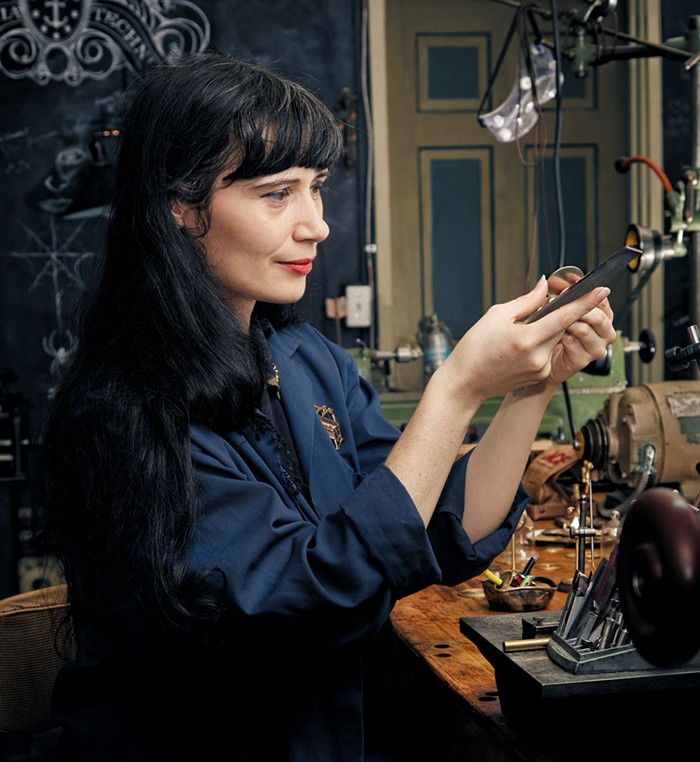What does an antiquarian horologist do?
It's a cross-disciplinary trade. I mostly work with antique clock or watch based objects that perform specific functions. Anything from making a facsimile of a living thing, called an automaton, to a musical box. Or even small watches that have music components or automata on the dial—basically I specialize in complicated antique mechanical objects.
How did you first get interested in this?
As a child, I collected music boxes and kitschy stuff that my grandmother gave me from post-holiday inventory sales. Snow globes or little scenes that had a music box in the bottom. I was never a fan of the outside part—I would always take the mechanisms out of the bottom and chuck the rest of it. It was really quite special, seeing everything working, seeing how delicate it was, and fragile. Producing something that was so tangible and beautiful to me, I got a lot of comfort out of that.
What's so magical to you about these mechanized machines from long ago?
These objects hold an incredible weight. You're looking at these things, and you're trying to cipher: How did they do this? Who designed this? And you think about the minds that were developing this technology, about how they had half the resources or maybe even fewer than we have today. They didn't have electricity! They were cutting wheels using a foot pedal. Yet we're struggling to reverse-engineer some of the stuff they were doing. So, for me, seeing the craftsmanship and dedication that people put into this work—these objects provide evidence to me of what is beautiful and good in this world. It's tangible evidence that there is something greater in our nature, and you can strive to do beautiful things outside of yourself just for the sake of making something that makes people happy. It's really something quite spectacular. ![]()













